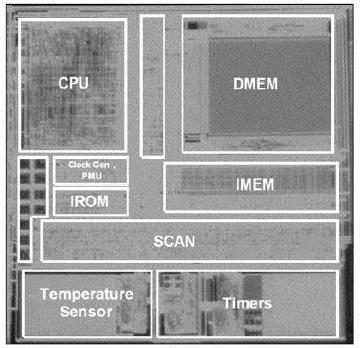
University of Michigan (U-M) researchers have developed an ultra low power microchip which ‘uses 30,000 times less power in sleep mode and 10 times less in active mode than comparable chips now on the market.’ It only consumes 30 picowatts in sleep mode, which means that a simple watch battery could power the chip for more than 200 years. Of course, this is not a processor for your next computer. It is designed for sensor-based devices such as m…
University of Michigan (U-M) researchers have developed an ultra low power microchip which ‘uses 30,000 times less power in sleep mode and 10 times less in active mode than comparable chips now on the market.’ It only consumes 30 picowatts in sleep mode, which means that a simple watch battery could power the chip for more than 200 years. Of course, this is not a processor for your next computer. It is designed for sensor-based devices such as medical implants, environment monitors or surveillance equipment. (via
A 30-picowatt processor for sensors | ZDNet.com)
The Smarter Planet tumblelog is an outgrowth of IBM’s strategic initiative to help a world of smart systems emerge.
See this primer on Smarter Planet
